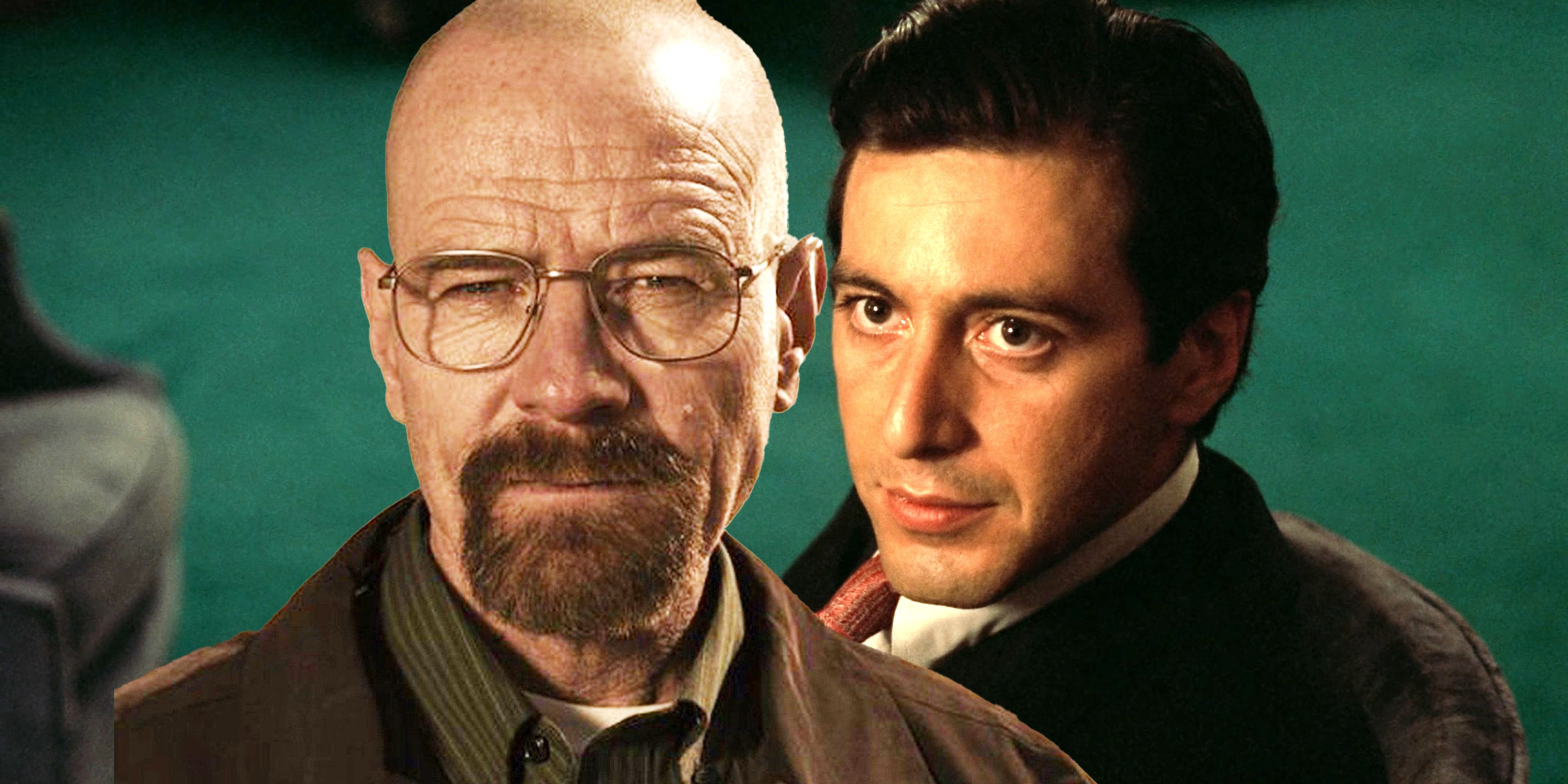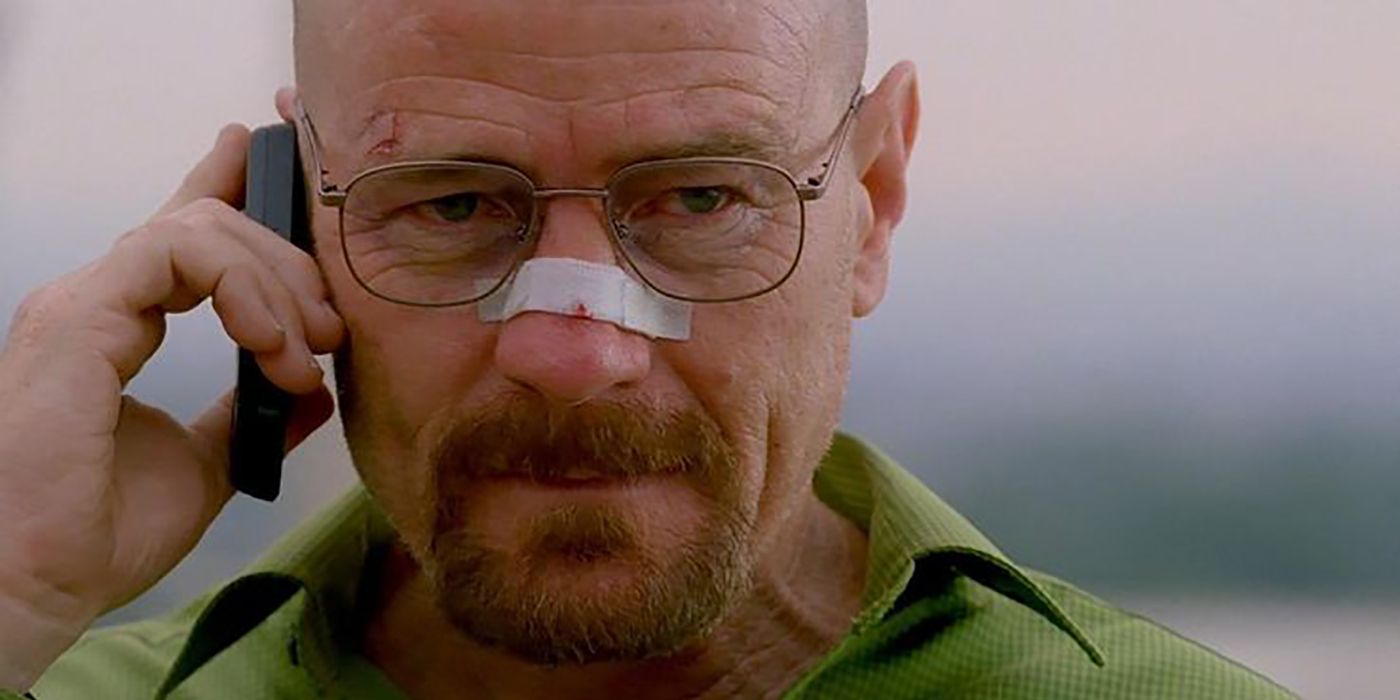Breaking Bad creator Vince Gilligan explains how his show was influenced by The Godfather. The crime-drama series aired five seasons from 2008-13 and ended its run as one of the most acclaimed TV shows ever made, and Gilligan's subsequent prequel series, Better Call Saul, has received similarly high praise. The film from director Francis Ford Coppola, which is similarly rated as one of the greatest movies ever made, enjoys its 50th anniversary this year, causing it to be temporarily put back in movie theaters.
The Godfather follows the Corleone family of mafiosi over a period of ten years, as Marlon Brando's patriarch Vito concludes his reign and ends up passing the torch to his son Michael, played by Al Pacino. Michael undergoes a significant transformation throughout the film, going from a reluctant member of his family determined to avoid a life of crime to his father's willing, ruthless successor - an obvious point of similarity with Breaking Bad. The AMC series tracks Bryan Cranston's protagonist, Walter White, as a surprise cancer diagnosis pushes him from life as a mild-mannered, underemployed chemistry teacher to a producer and seller of crystal meth, something that gradually transitions from being motivated by a determination to provide for his family to a darker desire for power at any cost.
In an interview with WSJ, Gilligan admits the resemblance is obvious, noting that one couldn't make something like Breaking Bad without having roots traced back to Coppola's mafia epic. However, the similarities don't stop there, and the TV creator notes that he has learned a lot about filmmaking in general from watching The Godfather. More specifically, Gilligan says that what the camera captures within a Breaking Bad scene is very much informed by how Coppola and cinematographer Gordon Willis shot their movie. Check out his full quote below:
You can’t make a TV show like Breaking Bad and not immediately trace influences to The Godfather. It’s a brilliant tragedy of this man, Michael Corleone, who does everything in his power to save his family and keep it together, and by that act winds up destroying his family. [...] I learn from it every time I rewatch it. From the photography I’ve learned that you don’t need to see everything on-screen. It’s striking how often you don’t see the faces of the characters who are talking. [Y]ou can linger on character, you can linger on small details if the audience is interested and engaged. You don’t have to be hurrying the plot along at breakneck speed.
Viewers of Breaking Bad, and especially Better Call Saul, will recognize the truth in Gilligan's comments, as both series are notable for their careful pacing. Indeed, the rhythm of their storytelling can at times seem at odds with that of this era, which it being informed by the 1970s classic would certainly explain. Seen in this light, the popularity of Gilligan's shows only further demonstrates the enduring effectiveness of The Godfather's filmmaking, which remains potent even when transposed onto projects that are tonally quite different from it.
Gilligan's comments come as filmmakers pay tribute to The Godfather for its 50th anniversary, and for many, its theatrical re-release has sparked discussion on how significantly the entertainment industry has changed since 1972. While it's true that the combination of critical adoration, box-office success, and awards season victories that Coppola's movie enjoyed might be beyond today's Hollywood, this comparison with Breaking Bad is a nice reminder of how this shift has been accompanied by the rise of prestige TV, with Gilligan a key creator in what has been called the ongoing Golden Age of Television. Rather than claiming they have disappeared entirely, it's worth wondering if movies like The Godfather simply moved over to the small screen.
Source: WSJ


